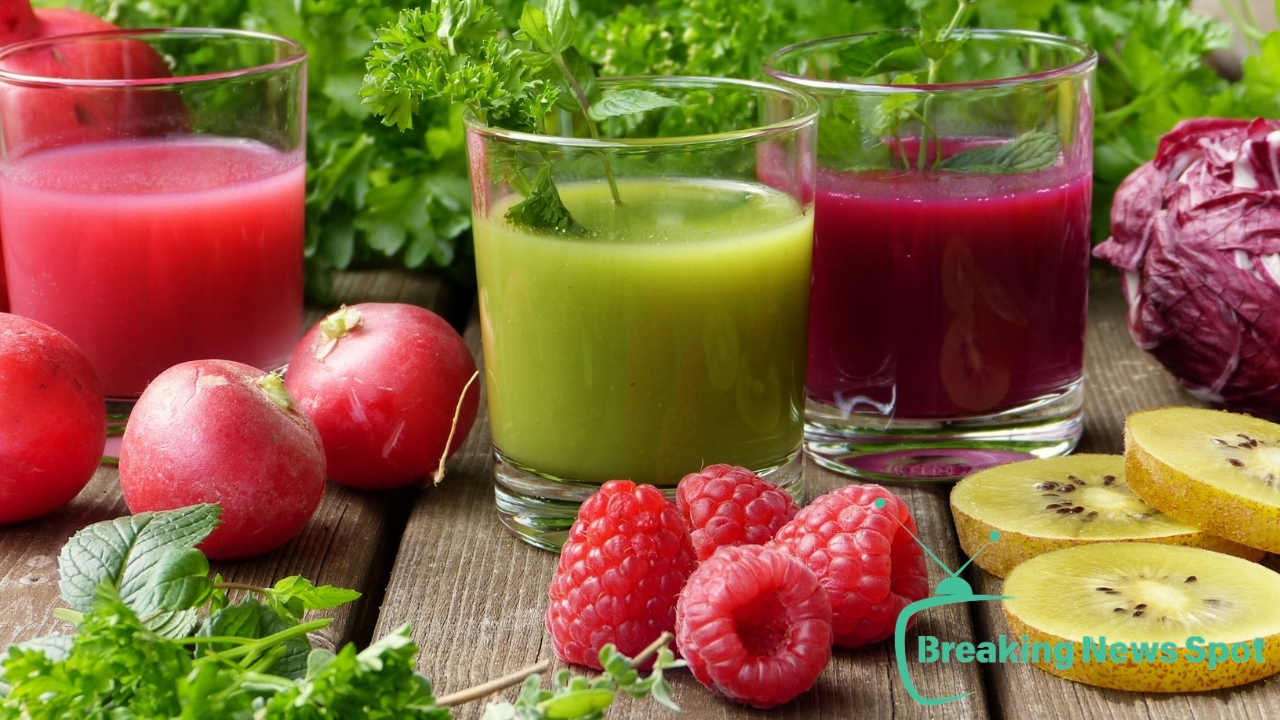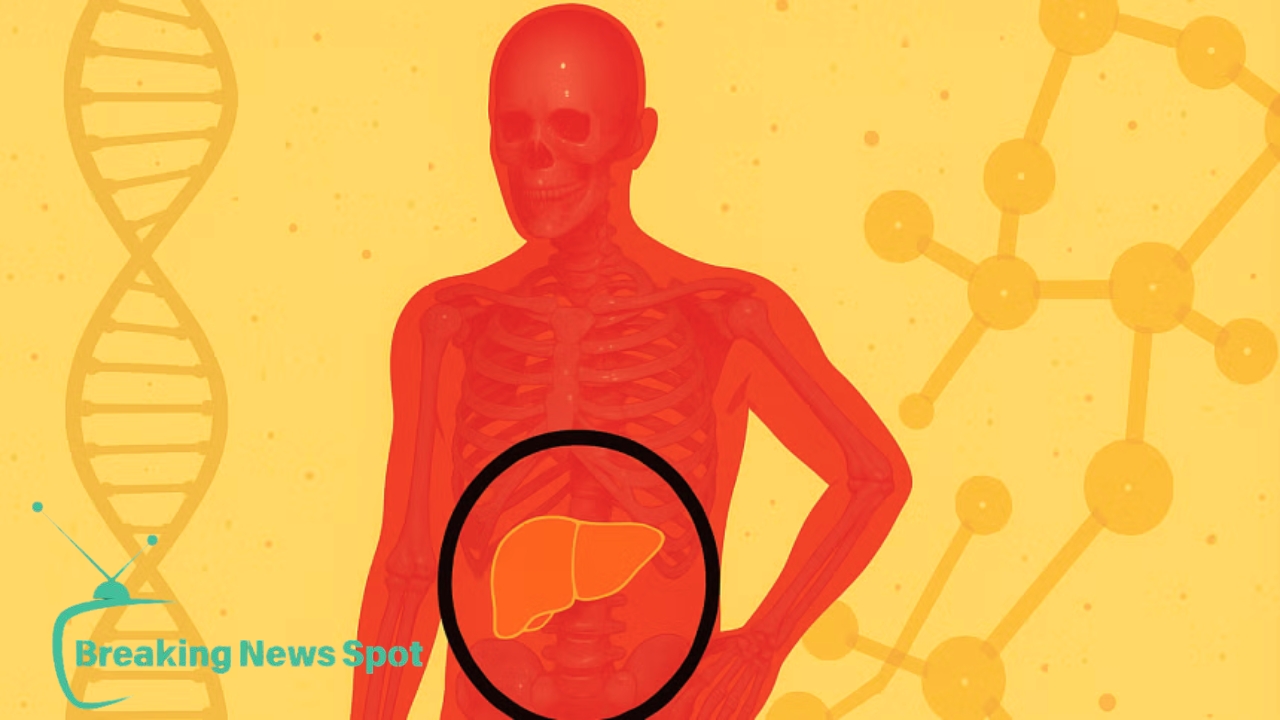Fashion
10 Natural Ways to Boost Your Immune System in 2025

Your body’s natural protection against viruses and diseases is your immune system. Keeping your immune system robust is more crucial than ever in 2025 because of increased stress, pollution, and viral illnesses.
These ten natural, scientifically supported strategies can help you stay healthy and boost your immune system:
1. Consume more citrus fruits
Vitamin C, which is abundant in oranges, lemons, and grapefruits, aids in the production of white blood cells, which are your body’s primary defenses.
2. Make Time for Sleep
Immunity is lowered by sleep deprivation. For your body to repair and rejuvenate, make sure you get 7 to 8 hours of sleep each night.
3. Drink plenty of water
Water keeps your cells healthy and helps you rid yourself of contaminants. Drink eight to ten glasses of water every day.
4. Engage in Regular Exercise
Every day, even 30 minutes of yoga, stretching, or walking increases blood flow and facilitates the effective movement of white blood cells.
5. Consume Ginger and Garlic
These are antibacterial, anti-inflammatory, and natural immune-boosting substances. Make use of them in your everyday cooking.
6. Decrease Tension
The immune system is suppressed by cortisol, which is produced by prolonged stress. Try deep breathing exercises, meditation, or calming music.
7. Consume probiotics
Overall immunity is increased by gut health. To improve gut flora, consume fermented foods, kimchi, or yogurt.
8. Get Daily Sunlight
15 to 20 minutes of sunshine provides you with natural vitamin D, which is necessary for the maintenance of healthy immune cells.
9. Limit Alcohol and Don’t Smoke
Your immune system is weakened by both. Your body has a better chance of battling illnesses if you stop using them.
10. Preserve Personal Hygiene
Wash your hands frequently, maintain a clean environment, and stay away from sick individuals whenever you can.
Concluding remarks
Maintaining good health is essential in 2025. These ten all-natural techniques will help you maintain a robust immune system, plenty of energy, and bodily protection.
Your well-being is your riches. Look after it each day.
—
Would you like more health advice like this? Follow Breaking News Spot to receive daily updates.
Fashion
Natural ways to reverse fatty liver: Dietary advice from experts

For general health, liver health maintenance is essential, and it requires a multimodal strategy that includes diet, lifestyle decisions, and expert advice from physicians and dieticians. Fatty liver is the most prevalent of the liver disorders or ailments that can be exacerbated by poor dietary choices. Changing one’s lifestyle can help prevent or treat this condition.
Function of the liver
Nutrition has a direct impact on the liver’s capacity to carry out a wide range of tasks effectively. It has a metabolic manufacturing function. Regardless of the food we consume, everything passes through the liver after digestion. The organ separates the meal into different sections after a thorough inspection.
In the liver, where proteins are broken down into amino acids, carbs into glucose molecules, and fats into fatty acids, 85–90% of the blood that exits the stomach and intestines contains vital nutrients.
A variety of enzymatic chemical reactions use the vitamins and minerals to break down and transform the food into a form that may be used. They also prevent bacteria and viruses from entering our bodies.
It acts as the body’s main detoxifier, dissolving and neutralizing alcohol, narcotics, and poisons. Sugars, minerals, and vitamins are stored in the liver and released when the body needs them. It also contributes to the control of cholesterol levels.
How to manage fatty liver
Patients with fatty liver are advised to follow the Mediterranean diet, which places a strong emphasis on fruits, vegetables, whole grains, and lean proteins while minimizing red meat, processed foods, and sugary drinks. Make an effort to consume as many fruits and veggies as you can.
Aim to consume three snacks (mid-morning, mid-afternoon, and late evening) and three big meals (breakfast, lunch, and dinner). Because it bridges the lengthy gap between supper and breakfast, the late-evening snack is the most crucial.
There are a few easy methods and recommendations we can keep up.
Four to five meals should be consumed each day, with no more than two to three hours between meals. You should have your final meal at least three hours prior to going to bed.
Meals should to be consumed gradually.
A symptom of satiety is often experienced 15 minutes after the conclusion of intake, thus it is crucial to complete eating even if you do not feel satisfied.
Fatty liver disease and other disorders affecting the liver can be significantly exacerbated by alcohol consumption.
Avert sweet foods such as fruit juices, sodas, cookies, and candies. Increased liver fat accumulation is a result of elevated blood sugar levels. Steer clear of fatty, high-calorie fried items.
Excessive salt consumption raises the risk of NAFLD. It is advised to consume no more than 2,300 mg of sodium daily. Individuals with high blood pressure should consume no more than 1,500 mg of salt daily. Adjusting may take some time, but it normally becomes simpler over time.
White flour is usually highly processed, and because it lacks fiber, products made with it can cause blood sugar levels to rise higher than those made with whole grains.
At United Hospital, the author serves as both the department head and chief clinical dietician. She is also the AGS at the Bangladesh Association of Nutritionist and Dieticians for Social Service.
Fashion
It’s monsoon, and strong sunscreen? “Yes,” a dermatologist says.

When the monsoon starts, nobody is exempt from the nearly daily challenges of traveling Dhaka. In addition to the roads and shoes, your skin and feet suffer, possibly the most. Infections, rashes, breakouts, and even hair loss are made possible by the persistent wetness, soiled water, humid air, and wet clothing. Until they worsen to the point where they need medical attention, these seasonal issues are frequently ignored..
We chatted with Dr. Sifat Saba, an aesthetic dermatologist and laser specialist at “Digilab Aesthetic and Laser Center” and “PHC Aesthetic & Derma Care,” to learn how to handle them. He has noticed a sharp increase in weather-related cases this season.
According to Dr. Saba, “people have to walk through flooded streets for a long time, and this exposure to contaminated water leads to fungal infections like athlete’s foot.” Your skin’s natural barrier is weakened when it stays soft and wet for an extended period of time. This facilitates the entry and growth of bacteria and fungus.
Additionally, she notes that cracks, itching, peeling skin between the toes, and even an unpleasant odor are indications that something is amiss. Sometimes bacterial infections like cellulitis can also occur, particularly in diabetics or those with minor cuts. “I often see a lot of cases like this,” she continues.
Dr. Saba advises wearing open or quick-drying shoes when you anticipate walking in water to prevent these problems. She also suggests thoroughly cleaning your feet, paying particular attention to the spaces between your toes, with a little soap and water.
For extra protection, people who are susceptible to fungal infections should use an antifungal cream or powder. She also emphasizes how crucial it is to avoid wearing wet shoes the next day.
When we inquired about another typical skincare issue, Dr. Saba talked about the significance of sunscreen. She claims that omitting sunscreen is one of the most common monsoon skincare errors.
“People think clouds protect them from sun damage, but that’s not true,” she says. Despite the clouds, about 80% of UV rays still reach your skin. UVA rays are particularly dangerous since they cause pigmentation, aging, and eventually skin cancer.
She advises applying a broad-spectrum sunscreen with PA+++ protection and an SPF of 30 or above. She points out that you still need protection near windows or screens even if you spend most of your time indoors.
Additionally, oilier skin and more breakouts are common during the monsoon season, especially for people who are already prone to acne. Regarding this, Dr. Saba states: “Oil glands are stimulated by humidity.” Sweat and filth combine to clog your pores.
To manage this, she recommended keeping to a straightforward skincare routine. Apply a non-comedogenic moisturizer, cleanse your face with a salicylic acid-containing product, and then top it off with a mild sunscreen.
She warns, nevertheless, that not every acne that occurs during the monsoon is acne. “A lot of patients arrive with little, irritating pimples on their back, chest, or forehead. Regular acne treatments don’t work on these. “That’s Malassezia folliculitis, or fungal acne,” she says.
“The treatment is different since yeast, not bacteria, is the cause. Ketoconazole and other topical antifungal treatments are effective. We recommend oral antifungals in cases that are difficult to treat. Prior to experimenting with random goods, it is crucial to have an accurate diagnosis as soon as possible.
Another common problem that dermatologists deal with during this time of year is hair loss. “It is real and it is seasonal,” Dr. Saba asserts. “Humidity contributes to scalp irritation and triggers transient shedding known as telogen effluvium. If you use harsh style tools, knot damp hair, or shampoo too frequently, this gets worse.
She suggests using a moderate anti-dandruff shampoo twice a week and eating a well-balanced, high-protein diet to keep it under control. Supplements like zinc or biotin could also be beneficial. She does, however, recommend a scalp examination if the loss persists for longer than six weeks.
Fabric selections also have an impact. “Sweat and heat are trapped by tight synthetic clothing, leading to fungal infections or skin rashes. Select breathable materials like linen or cotton, and get rid of wet clothes as quickly as you can.
She continues by saying that many people unintentionally make their skin condition worse during the monsoon season. “Common errors include overwashing oily skin, omitting sunscreen, applying thick lotions or makeup, failing to properly dry off, and spending hours in wet shoes. These are easily preventable.
What about natural solutions? “Some can help mildly,” responds Dr. Saba. “Itchy skin can be relieved with boiled neem water, diluted apple cider vinegar, or a small amount of coconut oil for dry regions. However, I usually advise against eating fresh lemon or garlic since they can burn. Something is not necessarily safe just because it is natural.
Her parting advice is straightforward. “The monsoon season in Dhaka can be hard on your patience and skin. But you can avoid weeks of suffering by adopting a few simple daily routines. Pay attention to your skin. Usually, it alerts you when something is amiss,” Dr. Saba concludes, grinning.
Fashion
7 Proven Ways to Reduce Stress and Anxiety Naturally in 2025

Stress and anxiety have become widespread problems for people of all ages in today’s fast-paced society. More than 75% of American people say they have moderate to high levels of stress, according to the American Psychological Association. Thankfully, there are safe, natural alternatives to medicine for lowering stress. Let’s look at seven tried-and-true strategies to help you feel more at ease and in charge in 2025.
—
1. Engage in mindfulness and deep breathing exercises
Your brain is signaled to relax by deep breathing. Try this easy method:
Take a four-second breath.
Hold for four seconds.
Take a four-second breath out.
Five to ten times, repeat
You can use apps like Calm and Headspace to lead mindfulness exercises.
—
2. Engage in Regular Exercise
Engaging in physical activity naturally reduces stress. Even a 20-minute stroll in the park increases endorphins, or feel-good hormones, so you don’t need a gym.
Try a little aerobics or yoga.
Exercise in the morning helps you control your mood all day.
3. Sip herbal teas
Some teas have soothing properties:
Chamomile: renowned for promoting restful sleep and lowering anxiety
L-theanine, which is found in green tea, helps people relax.
Steer clear of caffeine after 4:00 PM.
—
4. Improve Your Sleep
Sleep deprivation exacerbates stress. Develop these behaviors to enhance the quality of your sleep:
One hour before bed, stay away from screens.
Maintain a regular sleep routine.
Try taking magnesium supplements or using natural sleep aids like lavender.
—
5. Take a Digital Detox and Limit Screen Time
Anxiety can be increased by using social media or news sources excessively.
Take a single “no-phone” hour every day.
Disable pointless alerts
To maintain focus, try apps like “Forest.”
—
6. Consume Foods That Reduce Stress
Your mood is affected by what you consume. Add these to your diet:
Chocolate that is dark (truly!)
Nuts, bananas, and avocados
Foods high in omega-3, such as flax seeds and salmon
Steer clear of processed snacks and too much sugar.
—
7. Speak with a Trusted Person
One of the most effective stress-reduction strategies is social interaction.
Give a friend or relative a call.
Join a local or online support group.
If necessary, think about consulting a certified therapist.
Although stress is a natural part of life, you don’t have to let it to rule you. You may incorporate these natural methods into your everyday practice because they are easy to use and effective. Feel the difference by starting small and continuing to be consistent.
-

 Tech6 months ago
Tech6 months agoDo you frequently use ChatGPT? A study says that you’re lonely.
-

 Sports6 months ago
Sports6 months agoMessi comes back and scores in less than two minutes.
-

 Sports7 months ago
Sports7 months agoThey will make IPL a hit
-

 Entertainment7 months ago
Entertainment7 months agoDue to his mental health issues, David Kushner has cancelled his tour.
-

 Entertainment7 months ago
Entertainment7 months agoWhy did Juhi reject Salman?
-

 World7 months ago
World7 months agoIsrael continues its Gaza attack, killing a journalist and issuing evacuation orders.
-

 Fashion7 months ago
Fashion7 months agoBefore getting your ears pierced, here are some things to consider
-

 Tech7 months ago
Tech7 months agoXiaomi brings Redmi Note 14














